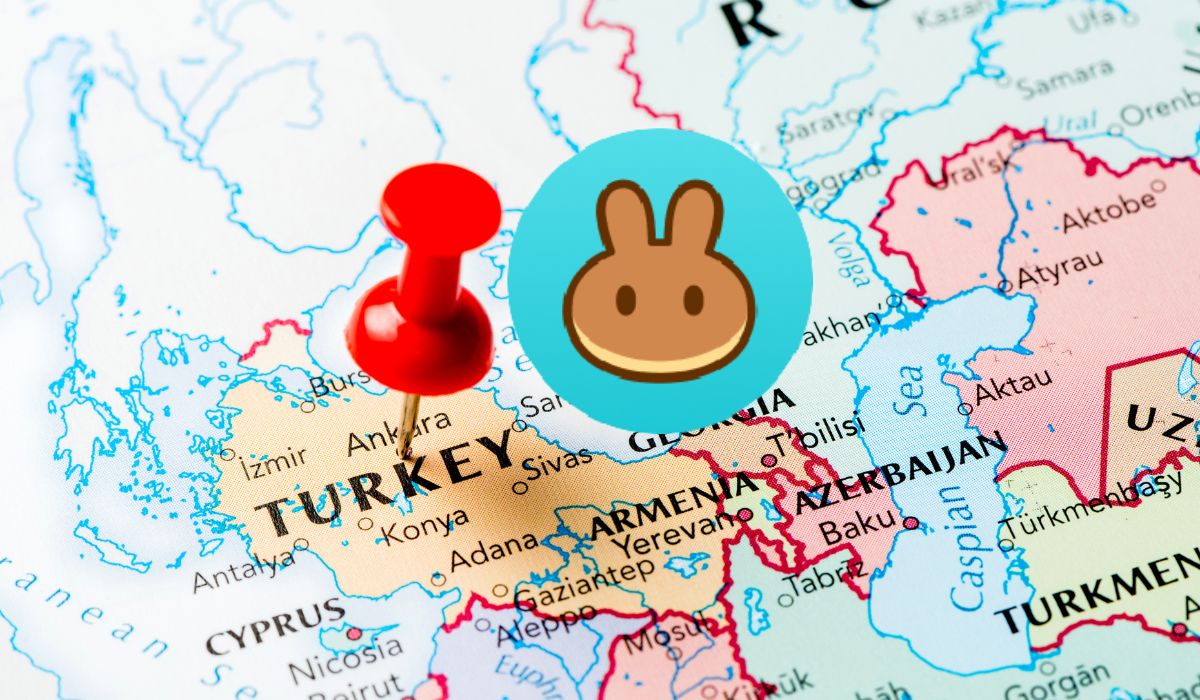PancakeSwap Blocked In Turkey — Regulators Move Against Unlicensed DEXs
In a move that’s made serious waves across the decentralised finance (DeFi) world, Turkey has officially blocked access to PancakeSwap one of the most widely used decentralised exchanges (DEXs) in the world. The ban is part of a broader regulatory push to shut down unlicensed crypto platforms operating in the country. This moment could be a turning point for DeFi. It raises big questions about how decentralised exchanges will operate in countries where governments are tightening control over digital assets. As a crypto journalist following this space closely, I’ve explored how Turkey’s financial watchdog is stepping up its efforts to regulate crypto and what that could mean for traders, investors, and the future of DeFi.
Why Turkey Blocked PancakeSwap and Dozens of Other Crypto Sites
Turkey’s financial watchdog, the Capital Markets Board (CMB), has taken a big step in its crypto crackdown blocking access to PancakeSwap and over 45 other crypto-related websites. The reason? These platforms, including PancakeSwap, were operating without the required licenses to offer crypto asset services to users in Turkey.
The decision was made under Turkey’s Capital Markets Law (No. 6362), specifically Articles 99/3 and 128/1(a), which give the CMB the authority to shut down platforms that don’t follow the country’s financial rules. According to reports, more than 46 crypto and forex websites are now inaccessible to Turkish users a clear signal that regulators are getting serious about compliance. PancakeSwap, which runs on the BNB Smart Chain, is well-known for its automated market maker (AMM) system and has been a major player in the DeFi world since it launched in 2020. Just in June, the platform processed over $325 billion in trading volume, putting it in the same league as top DEXs like Uniswap and Curve.
But PancakeSwap’s decentralised design the very thing that makes it appealing to users around the world is also what draws attention from regulators. For Turkey’s CMB, that lack of central oversight is a red flag. As governments around the world tighten their grip on crypto, we’re likely to see more actions like this, especially where platforms aren’t fully aligned with local laws.
CAKE Drops as Turkey’s PancakeSwap Ban Rattles the Market
The news of Turkey blocking PancakeSwap sent immediate shockwaves through the crypto market. The platform’s native token, CAKE, dropped by 3.36% on the same day the ban was announced a clear sign of investor concern over the platform’s accessibility and long-term future. Turkey has become a key player in the global crypto scene, with adoption rates rising from 25.1% in 2023 to 27% in 2024. That rising interest has caught the attention of regulators, who are now stepping in to crack down on unlicensed platforms. Their goal? To protect investors from shady or unauthorised activity even if it means shaking up some of the biggest names in DeFi along the way.
Turkey’s Regulatory Crackdown Signals Bigger Challenges for PancakeSwap
Turkey’s decision to block PancakeSwap is part of a bigger plan to bring more rules and oversight to the crypto world. In 2024, new laws gave the Capital Markets Board (CMB) stronger powers to regulate crypto asset service providers (CASPs). These rules require licensing and strict Know Your Customer (KYC) checks, aiming to boost transparency and crack down on illegal activities. Turkey isn’t alone in this regulators worldwide are trying to find the right balance between encouraging crypto innovation and protecting investors while keeping the financial system stable.
For PancakeSwap, losing access to Turkey is a big blow. The platform is still available in most countries, but Turkey is a key market, and this ban could hurt its user numbers and trading volume. It might also inspire other countries to take similar steps, which could lead to a more divided global crypto market. As decentralised finance (DeFi) platforms like PancakeSwap grow, regulators are watching closely. They want to make sure these platforms follow the rules even if that means limiting access in some places.
What Turkey’s Crackdown Means for the Future of DeFi
Turkey’s move against PancakeSwap isn’t just about one platform it could signal tougher times ahead for other big decentralised exchanges like Uniswap. Regulators in Turkey and around the world are starting to pay closer attention to DeFi, which raises an important question: Can these decentralised platforms adapt to regulatory demands without losing what makes them unique? As the crypto industry grows up, expect to see more actions like Turkey’s. While these regulations can be tough for DeFi platforms, they also open the door for new ideas and cooperation between crypto projects and regulators. The challenge and opportunity will be to strike the right balance where DeFi can keep innovating while keeping investors safe and the financial system stable.
Final Thoughts
Turkey’s decision to block PancakeSwap is a major moment in the ever-changing world of crypto regulations. It highlights the ongoing tug-of-war between the freedom of decentralised finance and the increasing demands of regulators. This tension will likely shape how the industry grows and evolves in the coming years. For now, PancakeSwap users in Turkey face a new challenge losing access to one of their go-to decentralised exchanges as DeFi meets one of its toughest tests yet.
FAQs
- Why was PancakeSwap blocked in Turkey?
Turkey’s Capital Markets Board blocked PancakeSwap for offering unlicensed crypto asset services, violating the Capital Markets Law. - What impact did the block have on PancakeSwap?
The block caused a 3.36% drop in CAKE’s price and a 23.5% decrease in trading volume to $50.54 million, affecting Turkish users. - How does this affect the broader DeFi landscape?
The block could set a precedent, prompting other countries to regulate DEXs like PancakeSwap, potentially limiting global access. - What are Turkey’s new crypto regulations?
Introduced in 2024, they require licensing and KYC compliance for crypto platforms to enhance transparency and investor protection. - Can PancakeSwap recover from this setback?
Recovery depends on adapting to regulations or finding workarounds, but global DeFi growth and community support could mitigate the impact.




